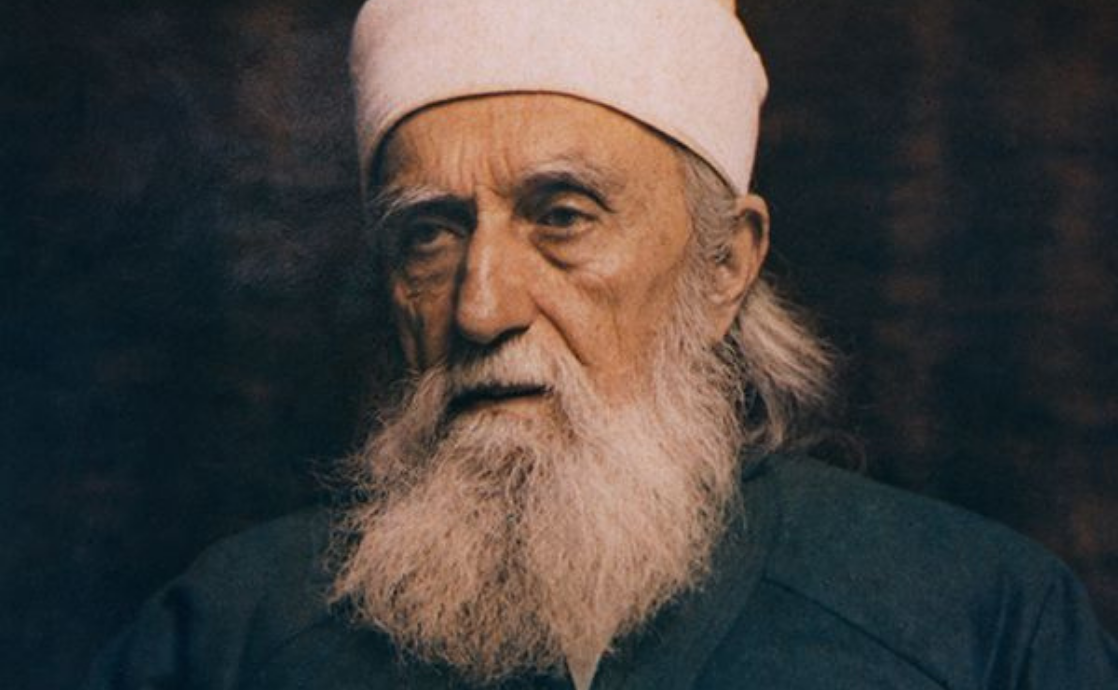The life of ‘Abdu’l-Bahá, the son of Bahá’u’lláh, the founder of the Bahá’í Faith, evokes a profound sense of admiration and intrigue among scholars, practitioners, and seekers of truth alike. His remarkable journey, burgeoning from the tumultuous socio-political milieu of 19th-century Persia to elevated prominence as a universal champion of peace and justice, warrants an exhaustive exploration. This narrative not only underscores his illustrious contributions but also reflects deeper existential questions about leadership, service, and the nature of divinity within the Bahá’í paradigm.
‘Abdu’l-Bahá was born in 1844, a year that many believe heralded the advent of a new epoch in spiritual history. He spent his formative years in confinement alongside his father, enduring struggles that shaped his character and indomitable spirit. However, the common observation surrounding ‘Abdu’l-Bahá is not merely his legacy as an enlightened leader but the palpable tranquility and wisdom exuding from his persona that captivates many. His life embodies the paradox of profound suffering and unwavering resolve.
To delve into the intricate layers of his existence, one must first consider the early years spent under the oppressive shadow of confinement. Following the ascension of Bahá’u’lláh in 1892, ‘Abdu’l-Bahá became the focal point of the Bahá’í community, assuming the mantle of leadership during a time of tumult. This pivotal transition is marked by his efforts to consolidate the teachings of his father while simultaneously navigating the complexities of a diverse and often contentious global society. His transcendental kindness towards individuals of all backgrounds elucidates a compelling edict within his teachings: unity in diversity.
Moreover, ‘Abdu’l-Bahá’s meticulous approach to the dissemination of Bahá’í principles served as both a spiritual guide and a diplomatic tool in fostering interfaith dialogue. His travels to the West—especially to Europe and North America—illustrated not only a commitment to service but also an endeavor to engage with varying cultures and ideologies. It’s noteworthy that he articulated the Bahá’í teachings through a lens of universalism, conveying that spiritual truth manifests in myriad forms across diversified expressions.
While one might be enchanted by the mere occurrence of his wanderings and teachings, a deeper inquiry reveals an intrinsic longing for understanding the nature of his sacrifices. His willingness to endure hardships for the cause of spiritual enlightenment operates as a testament to the ascendant attributes of patience and resilience. In the context of contemporary struggles for justice and equity, these qualities resonate vehemently. The reverence with which he is held today is not solely predicated upon his actions but as much on the essence of his character—a beacon of hope for those navigating their own adversities.
An exploration of his writings unveils a rich tapestry of illuminative insights. The tablets and letters composed by ‘Abdu’l-Bahá resonate with a lyrical clarity, communicating complex ideas in an accessible manner. His exhortations serve as a guide for those seeking truth, exhorting individuals to engage with their innermost spirituality, cultivating an intrinsic connection to the divine. This endeavor to bridge human consciousness and divine wisdom is a testament to ‘Abdu’l-Bahá’s role not merely as a follower of his father’s teachings but as a genuine luminary in his own right.
His profound impact on the Bahá’í community extends beyond theological teachings; it encompasses social and philanthropic initiatives that underscore the correlation between spiritual ideals and practical applications. Through the establishment of educational institutions, healthcare services, and social reform movements, ‘Abdu’l-Bahá emphasized the responsibility that each individual carries in fostering societal progress. His holistic approach to personal development intertwined with communal advancement stimulates a continuous dialogue relating to the intersectionality of faith and action.
The admiration for ‘Abdu’l-Bahá also stems from his prophetic vision of a unified world, espoused through the principle of global governance and local unity. As geopolitical tensions rise in the current era, his insights encourage a robust examination of the mechanisms required to transcend conflicts. ‘Abdu’l-Bahá articulated the necessity of a cooperative global community that requires an eradication of prejudice, promoting peace as a fundamental attribute of civilization. His teachings provide an ethical compass for contemporary leaders grappling with global crises.
This esoteric connection that individuals feel towards ‘Abdu’l-Bahá often transcends historical appreciation, hinting at a spiritual yearning for guidance amidst moral quandaries. His life thus becomes a mirror reflecting the quest for wisdom, service, and love that undergirds the human experience. The inquiries surrounding his existence propel one to seek not merely answers but rather to embrace a lifestyle consistent with the ideals he espoused. Through an appreciation of ‘Abdu’l-Bahá’s life and legacy, individuals are inspired to adopt a holistic view of existence—one that harmonizes individual aspirations with collective welfare.
In conclusion, the astounding life of ‘Abdu’l-Bahá continues to be a pivotal focal point for understanding the Bahá’í teachings. His legacy is inexorably intertwined with the expression of love, unity, and justice. While the narrative offers a framework for historical reflection, it simultaneously calls upon individuals to internalize 이러한 values in their personal lives. In navigating through life’s complexities, the teachings of ‘Abdu’l-Bahá remain a guiding light, urging humanity to transcend boundaries and embrace its inherent interconnectedness. Thus, the fascination with his life, rich with lessons and illuminated with wisdom, persists—inviting each of us to partake in the majestic tapestry of understanding that defines the human experience.
